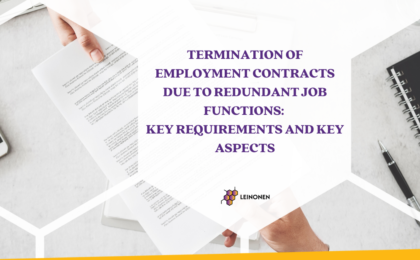Decision of The Supreme Administrative Court of Lithuania regarding the obligation of the company to collect information about a credibility of its business partners. Based on the Court’s decision, the Tax Administrator should not demand from the tax payers to incur disproportionate time and other resources costs in order to collect information about a credibility of its business partners.
The State Tax Inspectorate under the Ministry of Finance of the Republic of Lithuania (hereinafter – the STI) was of the opinion that the Company was acting dishonestly in the transactions with its suppliers, i.e. the Company knew or should have known, that the suppliers participate in a VAT fraud activity. The STI stated that the Company did not make minimal actions which are required to ensure that the suppliers of the Company did not act dishonestly in VAT related activities, i.e.:
· did not request power of attorneys from people who delivered a scrap-metal,
· did not follow who delivered and what transport was used to deliver goods,
· did not follow if the suppliers had licences to purchase a scrap-metal,
· did not follow if a scrap-metal originated while producing other items by the suppliers,
· did not inspect the usual activity of the suppliers.
The Company stated that the STI requires disproportionate information in order to establish whether the suppliers of scrap-metal were acting honestly. The Company applied certain internal procedures and safety measures in order to decrease risk. In addition, the Company stated that the most of factors used by the STI were collected after the completion of transactions between the Company and its suppliers. Therefore, the Company could not know these factors at the time when transactions took place and could not know that the suppliers may participate in VAT fraud schemes.
The Court ruled that the Company had the right to deduct input VAT even if some of the Company’s suppliers participated in VAT fraud because the Company could not know these facts. The Court decided that the STI did not collect factual information that the transactions mentioned did not occur or that the Company knew or should have known about the fraud activities of its suppliers.




